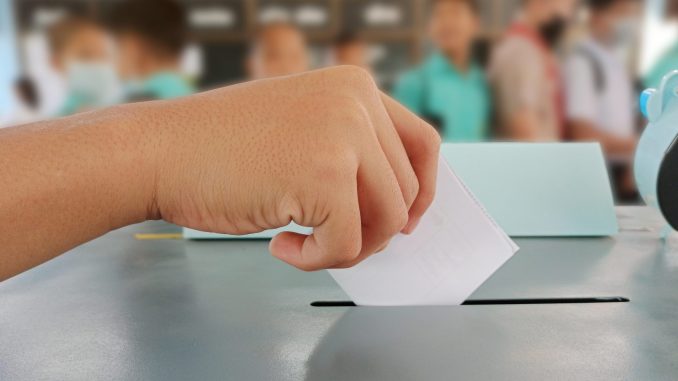
As Seen on Newsmax.com
By Steve Levy
Interest paid annually on the national debt comprises 14% of federal expenditures.
The debt to GDP ratio hit an all-time high of 126% in 2020.
Many may say we’ve had deficits for all this time and all the doomsday predictions of collapse have been wrong.
Perhaps debt and deficits just don’t matter, that is . . . until they do.
Many believed giving no income verification loans with no down payments was never going to catch up to us.
It did.
Many thought rising stock markets based upon dot com companies that showed no profits would go on forever.
It didn’t.
When we ignore the basics of economics, sooner or later, it will catch up to us. Just like with a personal bankruptcy, it happens gradually, and then suddenly it’s there, and you’re in it!
If investors think that our credit worthiness is bound to collapse when debt and deficits reach a point of no return, the sell off will be sudden and monumental.
The time to start addressing this was decades ago.
There are still opportunities, but as the great Yogi Beera said, it’s getting late early.
The faster we address the problem, the less draconian our options will be.
Critical, much needed measures could be taken immediately to stem the problem:
Pass a Balanced Budget Amendment
The federal government is the only level that does not require a balanced budget by law. Thus, deficits are the norm.
The requirement to pass a balanced budget forces prioritization, just as spending caps do.
A study conducted by our Center for Cost Effective Government showed that tax levels in states with spending caps are much lower than those without limits.
Prior to the implementation of New York’s 2012 property tax cap, annual school tax increases exceeded 6%. In the decade that followed, it was 2%.
Balancing the Budget Shouldn’t Be Difficult . . .
. . . If Congress adopted the one penny rule of Sen. Rand Paul, R-Ky., that cuts one penny for every dollar spent.
A slight penny adjustment on each dollar in every department would have a huge impact on reducing the national deficit. A six-penny plan would balance the budget in five years.
Finally . . .
Congress can control spending in the same manner they closed popular, but obsolete, military bases — via the implementation of a BRAC commission.
This commission was composed of congressional appointees, whose mission was to identify the bases most appropriate for closure.
Their final report automatically implemented the closures unless Congress voted affirmatively to overrule them.
This method shielded timid elected officials from the wrath of constituents since they never had to vote specifically on any closures.
This is a far more aggressive version of the Simpson/Bowles Commission which provided recommendations that collected dust on the shelf of the Obama administration.
But, apparently, leaders of neither party are being punished for their free spending ways.
Democrats are the spending kings, but many Republicans fall into the same trap. Trump gave us a strong economy with his tax cut, but he had a little appetite to cut back much.
Biden/Harris made matters worse by ballooning our deficit to up to $4 trillion during the pandemic and it still hovers near the $2 trillion level today.
Neither candidate is telling us how they’ll realistically close these deficits. Rather, they’ll blow even bigger holes by promising goodies to their favorite constituencies.
It started with Biden/Harris buying votes from their college educated base by waiving school loans. They doled out billions to their favorite nonprofit groups embedded in the so-called Inflation Reduction Act and the Covid Relief Act.
The pandemic emergency measure of increasing child tax credits is now being touted as an annual gift.
And let’s not forget the free home healthcare and housing down payments offered.
Not to be outdone, the Republican nominee floated the idea of waving taxes on tips.
It went over so well in swing Nevada that he followed up with eliminating taxes on overtime, a questionable idea since employees usually earn time and a half for the extra hours.
Now, to entice Michigan’s auto workers, Trump announced he would eliminate taxes on interest paid on car loans.
But it’s unlikely tax cuts targeted to specific interest groups will provide the same kind of filtering down effect that across-the-board tax cuts provide via the investment that follows.
We saw how tax cuts in the administrations of Kennedy, Reagan, and Trump actually brought in more revenue into federal coffers.
Moreover, reducing capital gains under Clinton led to a major economic boost in his second term.
Lowering the corporate tax rate in 2017 from 35% of 21% brought trillions back to American shores. That effect will not result from waving interest on car loans. Despite these rising revenues, the deficit grew because spending continued at alarming rates.
If we want to erase the deficit, the first step is to stop digging the hole deeper by doling out an increasing amount of campaign related constituent bribes.
Steve Levy is Executive Director of the Center for Cost Effective Government, a fiscally conservative think tank. He served as Suffolk County Executive, as a NYS Assemblyman, and host of “The Steve Levy Radio Show.”

